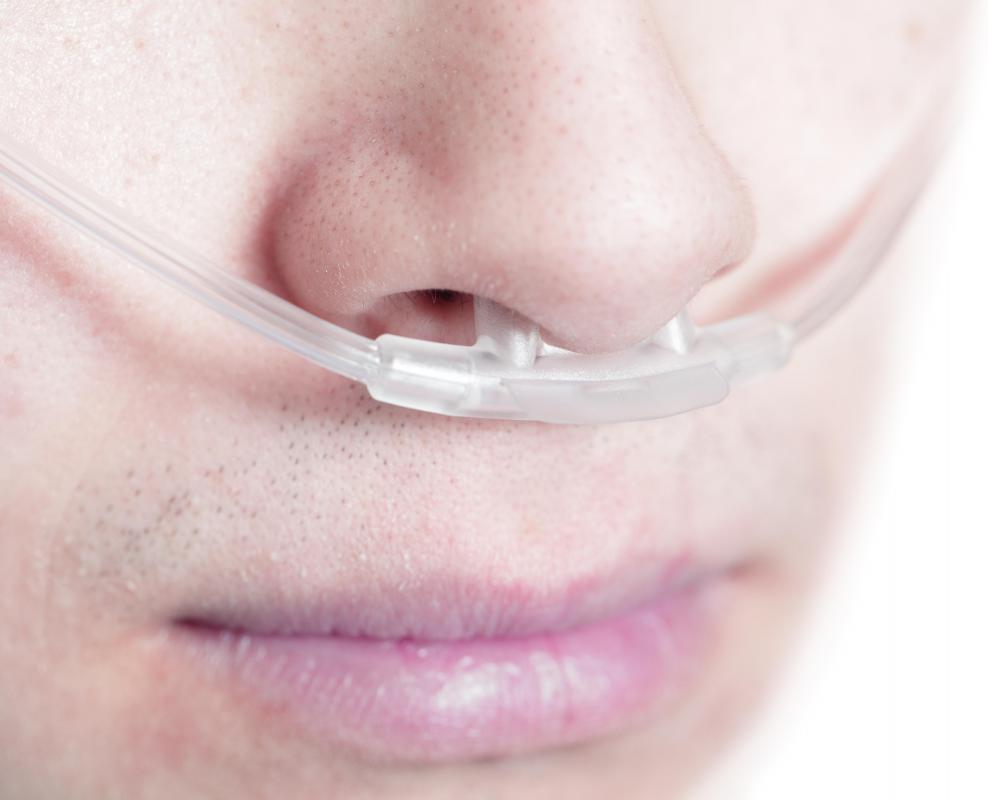At WiseGEEK, we're committed to delivering accurate, trustworthy information. Our expert-authored content is rigorously fact-checked and sourced from credible authorities. Discover how we uphold the highest standards in providing you with reliable knowledge.
What Are the Pros and Cons of Oxygen Therapy for Skin Conditions?
Oxygen therapy for skin conditions is an effective treatment that has been used for many years. Breathing pure, pressurized oxygen allows a patient to heal more quickly from many different types of conditions and injuries. Though it works well for many patients, there is the possibility of developing serious complications from oxygen therapy for skin conditions, especially if a patient already has cardiopulmonary problems.
Patients with serious skin conditions, such as severe burns and skin grafts, can often benefit from the use of oxygen therapy. These patients will often heal more quickly and suffer fewer complications, such as infections, as they heal. Patients are often able to leave the hospital setting more quickly when given oxygen therapy for skin conditions.

There are also benefits to using oxygen therapy for skin conditions that are less severe. Patients who have any sort of wound may use this treatment to improve healing and promote the body's immune system. These patients can often expect to recover quickly from a skin injury. Healthy patients can use this therapy to improve the look and youthfulness of their skin.

Though there are many potential benefits of oxygen therapy for skin conditions, there are also a number of problems that are associated with this treatment. Patients with heart conditions are at risk of aggravating them and are not generally prescribed oxygen therapy unless there are no other alternatives. Likewise, patients with certain lung disorders run the risk of further damaging their lungs.

There are also possible problems with oxygen therapy for skin conditions for patients who do not have preexisting heart or lung conditions. The change in pressure in the chamber can cause naturally occurring pockets of air in the sinuses, ears, and other cavities to contract and expand, which can injure a patient. It can also cause the lens of the eye to swell, a condition that causes blurred vision but that usually corrects itself within a few weeks.

Oxygen toxicity is another possible complication for patients who undergo oxygen therapy for skin conditions. This disorder, caused by the presence of too much oxygen in the blood, can cause difficulty breathing, dizziness, and confusion. If the oxygen levels remain too high for a long time, it can cause seizures and permanently damage a patient's lungs, though most cases clear up quickly when a patient starts to breath ordinary air again.
AS FEATURED ON:
AS FEATURED ON:

















Discuss this Article
Post your comments